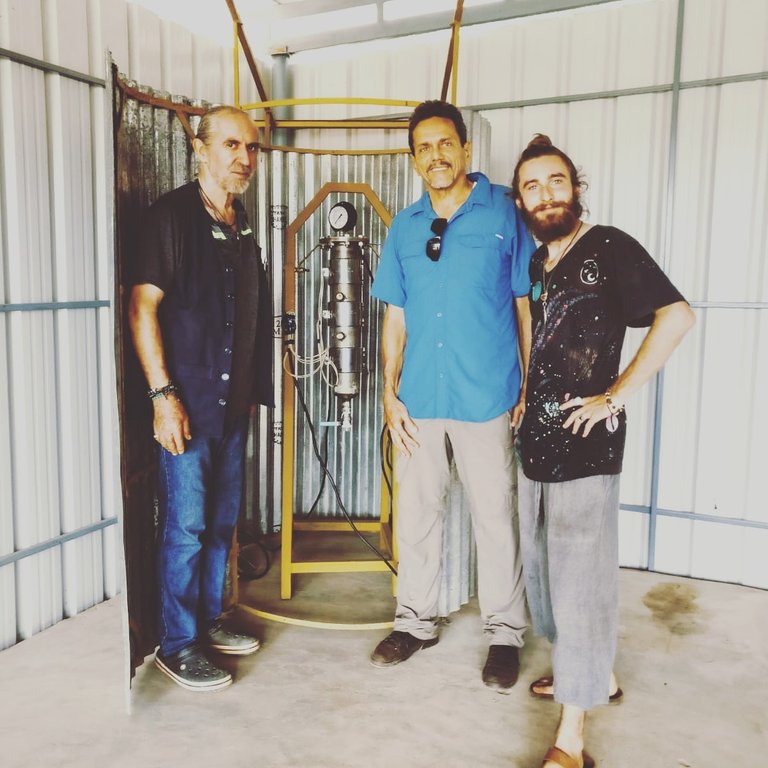Here I am, in Auroville, where I happened to have been volunteering for almost a year since my arrival in the beginning of May 2018. Initially I started my journey in the Botanical Gardens of Auroville. I always loved plants and wanted to study plant biology at university so this seemed to be my call. As time went on, I found the opportunity of working on biofuels from microalgae through the presentation of a Brazilian professor. Very soon afterwards I happened to be helping him manifesting his project into reality here in Auroville. We managed to design and build a prototype reactor with a local engineer and the help of some donations from our local friend circle. It is now operational and produce about 3L of biodiesel in about 2 hours. The conversion from oil to biodiesel is done with ethanol which is a safer alternative to methanol and the process doesn’t require a catalyst like most common conversion process. In fact, it is one of the easiest way to transform oil into biodiesel in my opinion. I have been using the waste cooking oil that I collected from local restaurants in Pondicherry to do the first conversions, which we call transesterification in chemistry. The nice aspect of this process is that the water present in the oil actually help the conversion as it is contrary known, which requires therefore less pretreatment. The professor had to go back to Brazil to teach his students, but will be back by the end of this year to carry on a project grant he wrote for bioethanol from microalgae which was accepted by the Central Government of India just before his departure. The next step is to grow microalgae strains that contains high percentage of oil. The microalgae strains are immobilised on a porous membrane and grown vertically on a twin-layer photobioreactor which is a real breakthrough in the field of biofuels, discovered by Professor Melkonian from Cologne in Germany. This is the main reason why this project is more viable than all the other attempts at producing biofuels up to now. As the main problem is the production of huge quantity of biomass at a reasonable cost. This technique has the potential to overcome this in many ways that I will explain later on as time unravels. Below is a picture of the professor in blue shirt and of another great man who has helped tremendously the continuity of the project by providing us a space to grow, that is Jurgen, Aurovillian since 1973.

Sort: Trending